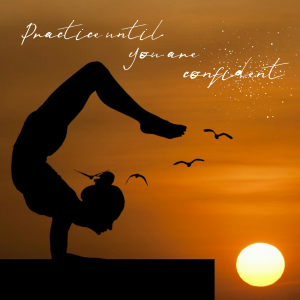The Beginners Guide: To successful New Year resolutions
 Happy New Year. I hope it was a good evening for all of you, whether you spent it quietly with friends and family or if you were out partying until the early hours. I enjoyed a party with friends and family and I am looking forward to a quiet and relaxing day, although my friend has the wonderful idea of clearing our heads by going swimming in the sea!
Happy New Year. I hope it was a good evening for all of you, whether you spent it quietly with friends and family or if you were out partying until the early hours. I enjoyed a party with friends and family and I am looking forward to a quiet and relaxing day, although my friend has the wonderful idea of clearing our heads by going swimming in the sea!
So, how many of you have set New Year’s resolution this morning? Or maybe in the past woken up from the night before and said I am going to stop drinking, get fit or lose weight? Maybe it’s been about getting a new job, or making new friends, finding a new hobby. Whatever it is, well done for taking the first step to achieving what you want!
New Year resolutions date back 4000 years. Babylon used to make resolutions to their Gods, and we can see these types of resolution all the way through history; The Romans, Knights, Christians all made resolutions before their God and they can be seen all the way to modern times. Today they are not so much for religion but normally to change a trait or behaviour that we do not like.
What you may not know is that a staggering 60% of us will struggle to keep our resolutions. So why do such a low % of people achieve their goal(s)? In short, often we are making the goal too big, we have no detail and we feel overwhelmed. Therefore, we end up in our negative brain the limbic system, which does not like change. It will try to pattern match what we have always done and will feel uncomfortable. It will then tell you all these wonderful stories on why we should continue as we have always done. It thinks it’s trying to save your life but realistically its been a little in effective to say the least! Although we have good intentions and know we will feel better, feeling doesn’t always mean we will achieve it.
So, what can we do differently?
1.Keep goals small and achievable, keep them smart. Do not focus on the end goal, it’s about focusing on what needs to be done at that very moment to help you achieve the overall goal.
2. Make it as detailed as you can. When, where, what, who do you need help with? What are the first steps and focus on those. With regards to timescales, if you put them in place and miss them you run the risk of beating yourself up.
3. Celebrate small successes, you will have ups and downs. You will have days where you get it wrong, but don’t focus on when it went wrong, focus on what you have done and how well you have done. Keep a diary of all successes and refer to it.
4. Use the times when it has gone off track/wrong, to understand how you can do it differently. If you view them as an opportunity to learn and not make mistakes, you can just tick off one idea and try something else, you will not be so hard on yourself.
5. Realise that it’s the journey not the end goal that gives us happiness, as this is our life. Achieving the end goal whatever it might be, will obviously give us pleasure but it is only one moment in time.
6. Take an interest in what you want to achieve, learn about it, research it and understand it. Sometimes when we begin to understand and know what we want, we learn to like/love it, so we become it.
7. When at the coalface deciding, take deep breath(e)s for 20 seconds. By breathing deeply, you will take time to calm yourself and move back into your left pre-frontal cortex where you are able to make logical, rational decisions, you can ask yourself what you want.
8. What would the future self say to you? Visualise the future you. What would you be doing? For example, if your goal is to get fit and go to the gym. What would be making them go? Would they be forcing themselves or would they be looking forward to 30 minutes of exercise. How could you tell, what would they be saying, when would they be going, would it be the first thing they would be doing? Visualisation is a powerful tool to achieving what we want.
9. Fake it until we make it – Just do it, just say it, until we are practiced and confident and don’t need to think about it.

We do not get comfortable or confident and then do something……. we do something and become confident.
10.We must practice. Just as we tell children when learning or doing something new
11.Work with someone. Team support. We are better as a tribe than as individuals, go with people, have their encouragement and return the encouragement.
Whatever your goal you can achieve it. It’s about having confidence in your own ability, being kind to yourself and recognising that it’s ok to change the direction of the goal and adapt to make it work, by learning from our actions we will be successful. Every day, over the next few weeks on my Facebook page, I will be sharing small self care ideas which can begin to help you make the changes you want.
So, don’t forget to like and follow my Facebook page. In the meantime, if you need any help on making the changes you want to or achieving your goals, get in touch to book a free initial consultation. As a Clinical and Solution Focused Hypnotherapist I can provide positive support and advice to help you make your goals a reality. I look forward to hearing from you.
Amy xxx

Leave a Reply